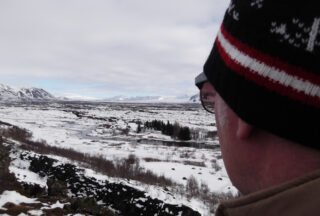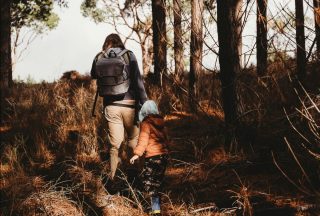A lot of people don’t actually realise they are carers until they’re called a carer. I think I was made aware of it at the doctor’s surgery. They brought along someone from Carer Support Wiltshire who explained what they did and I thought, gosh I’ve been doing this for a few years. They’re an organisation that can point you in the right direction for all sorts of help and gadgets and all sorts of things like that.
I don’t think it crossed my mind really. It was just a fact of life. My wife became disabled with muscular dystrophy. It was a gradual process – it didn’t happen overnight. She lost the muscle power to do things like walking and lifting things like kettles – simple things like that. Then you suddenly realise that you’re doing these things. It creeps up on you, quietly, gradually.
I suppose we are very independent people. She was director of a company and so was I, so we were managing a lot of people and used to finding solutions for our problems.
For instance, I was just talking about a kettle. Instead of having a kettle we now have a little urn that holds 5 litres and you can just pour yourself a cup or a pot of tea directly from it.
Alexa has been a dramatic change. We use it for everything here – all the lights are controlled by it. If my wife fell over anywhere in the house she could ask it to give me a call on my mobile phone, or call our daughter. She doesn’t have to have a mobile phone with her. It’s extremely useful.
There are bad days. Some days my wife gets frustrated with not being able to do things for herself. It’s quite normal. She might not be able to lift the linen basket and take it downstairs and it slips out of her hand and drops on the floor. I try to look at them as a challenge rather than annoying.
The above was taken from a BBC Radio Wiltshire interview with Tom.




